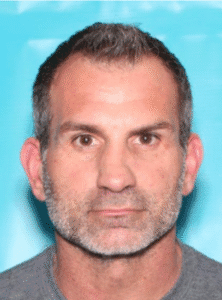DEC proposes GHG reduction regulations to implement Climate Leadership, Community Protection Act

New York State Department of Environmental Conservation Commissioner, Basil Seggos, has released proposed regulations to reduce greenhouse gas emission statewide.
According to the Commissioner, the move is aimed at implementing the Climate Leadership and Community Protection Act.

While disclosing this on Friday August 14, 2020, Seggos maintained that the proposed regulations will mark a milestone in realizing New York’s nation-leading clean energy and climate agenda.
“Greenhouse gases are created from a variety of sources and are accelerating the costly economic, public health, and environmental impacts of climate change here in New York and across the globe,” Commissioner Seggos said.
“With a continued absence of federal leadership, the release of these proposed regulations brings our State one step closer to realizing the State’s historic Climate Act and demonstrates New York’s continued leadership on climate,” he added.
Seggos further stated that the announcement demonstrates New York’s leadership on climate by taking a new and ambitious approach to the accounting of harmful emissions from fossil fuels – within and outside of the state – and for potent, short-lived pollutants such as methane.
It was reported that the proposed regulations enable New York State to apply a flexible, stakeholder-driven approach for the annual accounting of net emissions.
They establish the 1990 baseline, per the CLCPA, to include all statewide sources of greenhouse gas emissions, as well as emissions associated with imported electricity and fossil fuels.
“The proposed regulations establish statewide emission limits on naturally occurring and manmade gases—carbon dioxide, methane, nitrous oxide, hydrofluorocarbons, perfluorocarbons, and sulfur hexafluoride—to guide State agency actions,” Seggos said.
He added that the proposal will be published in the State Register on Aug. 19, and made available at DEC’s website.
DEC has scheduled two virtual public hearings on the proposal on October 20, and will accept written comments through 5 p.m. on October 27, 2020.
Doreen M. Harris, Acting President and CEO, NYSERDA said, “With the CLCPA, New York is leading the nation in aggressively combatting climate change by reducing harmful GHG emissions and stimulating a green economy that offers opportunity for all.
“The proposed regulations released by DEC today are another example of Governor Cuomo’s commitment to environmental stewardship and if adopted, will represent a significant milestone in meeting New York’s ambitious goal to reduce emissions 85 percent by 2050 while ensuring a just transition to healthier, more resilient communities,” Harris said.
In 2019, Governor Cuomo signed the CLCPA, the most ambitious climate and clean energy legislation in the country.
The CLCPA requires the State to achieve a carbon free electricity system by 2040 and reduce greenhouse gas emissions 40 percent below 1990 levels by 2030 and 85 percent by 2050, setting a new standard for states and the nation to expedite the transition to a clean energy economy.
The law drives investment in clean energy solutions such as wind, solar, energy efficiency and energy storage and ensures that at least 40 percent of the clean energy investments benefit disadvantaged and low-to-moderate income communities.
Governor Cuomo’s nation-leading climate plan is the most aggressive climate and clean energy initiative in the nation, calling for an orderly and just transition to clean energy that creates jobs and continues fostering a green economy as New York State Builds Back Better as it recovers from the COVID-19 pandemic.
Enshrined into law through the Climate Leadership and Community Protection Act, New York is on a path to reach its mandated goals of economy wide carbon neutrality and achieving a zero-carbon emissions electricity sector by 2040, faster than any other state.
It builds on New York’s unprecedented ramp-up of clean energy including a $3.9 billion investment in 67 large-scale renewable projects across the state; the creation of more than 150,000 jobs in New York’s clean energy sector; a commitment to develop over 1,800 megawatts of offshore wind by 2024; 1,800 percent growth in the distributed solar sector since 2011; efforts to expand and update the Regional Greenhouse Gas Initiative, increase funding and access to clean energy for low- and moderate-income families; a commitment to electrify buses and trucks; and accelerate the adoption of electric vehicles, including $206 million of $701 million allocated for lower-socio-economic and disadvantaged communities to build electric vehicle charging stations and infrastructure announced by the Governor just last month.














